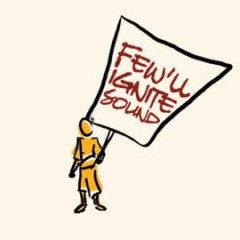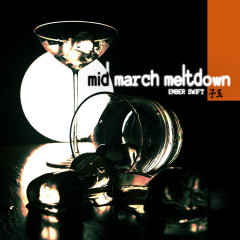Thin Ice?
When I came to Beijing in 2007, I still had a partnership back home with my ex-girlfriend. When people asked me questions in Chinese about my life back home, I remember looking around furtively for the gender-neutral expressions of partnership in this language, especially since I had just encountered this culture and was in protective mode. I was afraid of possible homophobia. I admit it.
There I was in this place that felt so perfect for me in so many ways. I felt resonance with the history, culture and language—even the land itself. I felt like I belonged. But, what does a queer like me have in common with a reputedly repressed society (at least in “sexual revolution” terms) where gay marriage, for instance, is a long, LONG march away?
I remember my hesitation in those conversations. I wasn’t interested in testing the ice too quickly for fear that it was just a shiny illusion of acceptance and kindness smiling back at me, the foreigner. I was afraid this illusion would be too thin for the weight of my queer reality and that I’d quickly fall through into the icy depths of homophobic misunderstanding.
That would surely have ruined everything. How could I fall in love with a country and culture only to find out that it rejected the core of who I am? The core of who I loved?
There are a few words that are gender neutral that I clung to. The first is “爱人airen,” which literally means “loved one.” It’s an old-fashioned term, in some ways, but is still used between spouses. It’s often used by those who have been together for a long time, in fact, and implies respect.
At first, I translated it incorrectly as “lover” and used it consistently. When I realized that I was communicating the message of spouse and therefore, husband, I argued with myself that my ex-partner was almost a spouse, after all. We had even joked when we bought the house together that, “With this mortgage, I thee wed!” I also argued that she was my “loved one” and that there were no better words anyway.
The other word I later came to use was “对象 duixiang,” which literally means “opposite and likeness” or, by extension, the one opposite you who is your match. This word is more generally used for a partnership that could be either a marriage or just a “girlfriend” or “boyfriend.” The thing is, both men and women use this word and there’s no gender association with it. I learned to use this word after I met Guo Jian, though, and still use it today when I speak of my ex-partner. I like the equality in it.
I remember that I had lunch once with a guy that I met when I was a student in 2007 who was from France and named Stephan. When I spoke of my life back home, in French, I referenced my “amoureuse” (as my direct translation of the gender neutral “lover,” as I had been using in Chinese), but he quickly corrected my French to “amoureux.” At that moment, I realized that French can never be gender neutral. I could have said “ma blonde” for “my girlfriend” but I had already started a habit of using the “lover” equivalent, but here even the word “amoureuse” had a feminine ending if I was referring to a woman. I, of course, corrected it back to “amoureuse.” Just like that, with one gendered suffix, I was out of the closet and slip-sliding on ice like a baby Bambi. He was great about it, of course, and we had a nice lunch talking about many things. My queerness was not the focus.
(I never heard from him again, though, and I later realized that he must have been interested in me. I am so bad at that. I never know when men like me or find me attractive. It’s a real problem! I was sad that he and I weren’t beginning a friendship.)
Then, that fall, when I re-met Guo Jian and on the week in Southern China when we really fell in love, it wasn’t until the second last day that I finally said, “You know that my ‘爱人airen’ is a woman, right?”
I had been hanging out with him for about a month. Our relationship had progressed in the final week to that mountain of bliss that only simultaneously falling in love can bring and it was during that week that I suddenly realized that I had never really come out to him. I had referenced my life in my limited Chinese, but I found myself in love with someone whose views on queerness I had not yet even heard! What if he was a homophobe? What if the illusion of perfect ice was, in fact, hiding that dark ignorance in all Chinese people and, now that I was intimate with one of them, I was about to discover that Chinese people don’t accept or acknowledge gay people! Could it be that extreme? I gulped with fear before I told him. I closed my eyes and just said it and waited with held breath.
He said, “I know. I’ve always known.” And he said nothing more.
Later I learned that his friends had warned him off of hanging around me because, they said I “was a lesbian” and there was no chance. He said to them that he didn’t know what I was, but he liked me. He was listening to his gut and he was teaching me to do the same. Something I love about Guo Jian is that he has never once suggested that he’s changed me; he just fell in love with me and I fell in love with him. It was just that simple.
When he explained it that simply, I knew that the ice was safe. I wasn’t going to fall through. Since then, I’ve met many of his gay friends and I’ve encountered more of the gay world here in Beijing. He and I even went to the LGBT Queer Film Festival here a few years ago and had a nice time. It’s true that the more traditional Chinese population still don’t understand gayness, but the gay contingent in the modern arts scene is alive and well and met with openness and acceptance.
About a year after Guo Jian and I had been together, I discovered that Guo Jian was very open about my history with his friends. All of them knew my identity wasn’t and isn’t straight and none had said anything. As sex is a very implicit topic here, it’s not common or polite to speak of such things in Chinese culture anyway. It would make everyone (except me, the outsider) extremely uncomfortable.
At first, I was a bit indignant that it hadn’t been me to come out to people. After all, I had been “outed” without my consent! But, in the end, I was relieved. It would have been weird for me, who barely knew them then, to just launch into the topic one day. What’s more, I get the impression that Guo Jian is a bit proud of his partner for being so worldly or different or… something.
But, regardless of why he outed me, what I realized early on is that Guo Jian and I are just fine. There’s no homophobia. He fell in love with me, because and not despite my queerness. Because it’s a big part of who I am.
So, to keep the analogy solid (!), we are standing strong on this ice rink of our love.
Now I just need to teach him how to skate!








